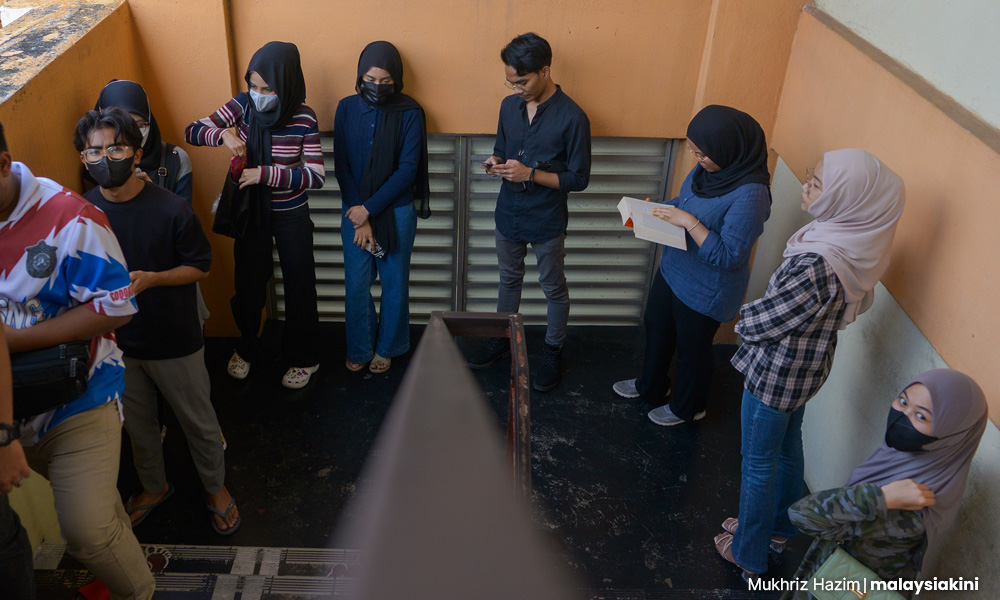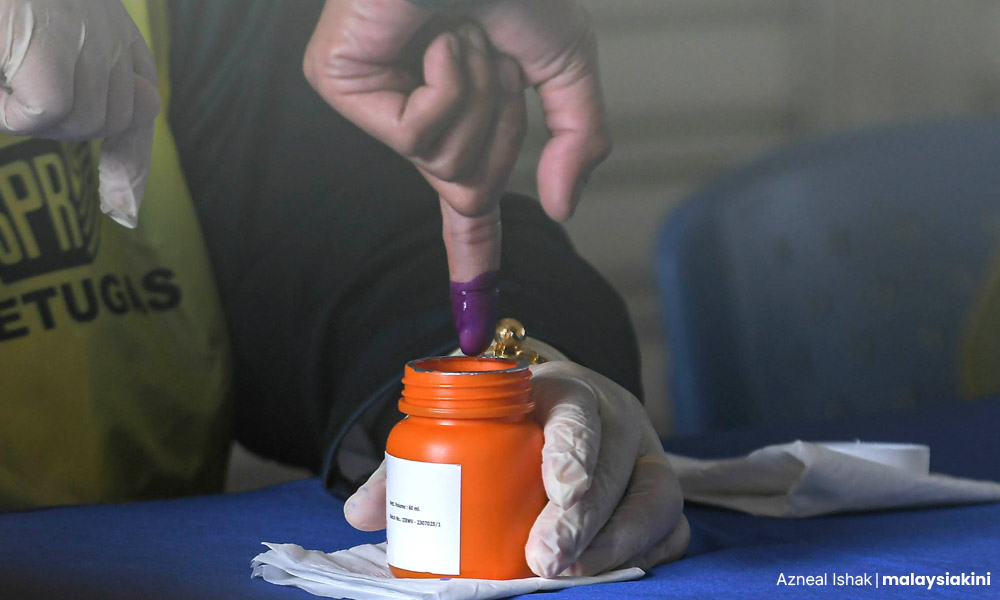STATE POLLS | It was a casual 'mamak session' where Malaysians of different divides spent their night hanging out sipping teh tarik after a hard day of work.
With the ongoing campaign for state elections in six states - Selangor, Negeri Sembilan, Penang, Kedah, Kelantan and Terengganu - issues on politics are definitely the hot topic of discussion and mandatory exchange between mamak goers.
During one of these sessions, a friend in his late 20s suddenly asked this writer: “Why should I return to my hometown to vote when I just voted not even a year ago?”.
To the writer’s surprise, the difference between the general election and the state election not only confused him but also his other friends, with most of them already deciding not to vote as they felt they just carried out their civic duty not too long ago.
With four more days to go before polling on Aug 12, a senior lecturer at the Faculty of Administrative Science and Policy Studies, Universiti Teknologi Mara (UiTM) Sarawak, Nur Aida Kipli, shared a similar concern that this political illiteracy among the youth could affect voters turnout and election results.
“Their (youth) reluctance is because they don't see the relevance for them to vote in the state elections. This is because they lack political exposure to the importance and significance of the state elections.
“They also tend to believe that their role is insignificant and they don't see the big picture why state election plays important roles in their community,” she told Bernama.
A total of 9.67 million voters will cast their ballots this Saturday for the six states.
More than half of the total voters are youth below 39 years old with 661,905 voters aged between 18 and 20, 2.16 million (21-29) and 2.16 million (30-39).

It was reported that the six states decided not to hold state polls at the same time as GE15 in November last year as they needed time to prepare for the annual monsoon floods, while the remaining seven states held their state polls in the last two years.
Sabah held its state election in September 2020, Malacca and Sarawak respectively on November 2021 and December 2021, and Johor on March 2022. Only Pahang, Perlis, and Perak held their state elections simultaneously with GE15.
Traditionally, state elections are held at the same time as the general election with assemblypersons and MPs serving the same five-year term, but each state can decide when to hold its election.
Awareness campaigns
On this, Aida suggested that awareness campaigns need to be tripled by the media, government agencies, educational institutions, and NGOs so that the eligible voters know the most important reason “why they should vote this time around”.
Meanwhile, Malaysian Youth Council (MBM) vice-president Mohamed Khairul Azman Abdul Azeez said it would be a waste if the young voters do not carry out their duty and opt to ignore the election.
Admitting having faced the same problem during his engagement sessions with some youths, he urged them to understand their actual potential in choosing the right leaders who could give a great impact on their future.

“That is why in the democratic process, Malaysia practices the first-past-the-post system. It doesn't matter when an election is held, whatever the turnout is, what makes the decision is the majority, if out of 100,000, only 20,000 came out and voted, then that’s the majority.
“This is a big loss, it is not only a question of the democratic process, but a huge loss for the young people who are now allowed to vote under Undi18 and take part in determining the direction of the six states, but chose not to,” he said.
Teach it in schools
Khairul suggested that the subject of democracy be taught in school so that by the time the students were eligible to vote, they would already be aware of their roles in the election.
“For MBM and more than 40 of its affiliated bodies, we have our own methods such as social media, briefings, as well as providing infographics, and holding engagement sessions with schools and universities.
“But of course, our resources are limited. What’s more important is the government’s intervention, especially of the Education Ministry and Youth and Sports Ministry, to ensure that necessary education on democracy is implemented in secondary schools so that it becomes the basis when students leave school with sufficient foundations,” he said.
- Bernama



No comments:
Post a Comment
Note: Only a member of this blog may post a comment.